Report] "Seminar and Study Session on the Potential of Environmental Business in Pacific Island Countries
Summary
ICETT held a "Seminar and Study Session on the Potential of Environmental Business in Pacific Island Countries" on February 4, 2020, in Nagoya, Aichi Prefecture, to support companies with excellent environmental conservation technologies in Pacific island countries as part of their efforts to recycle plastic resources.
Not much is yet known about Pacific island countries, including general overviews. While blessed with abundant tourism resources, they are also vulnerable to the impacts of population growth and global warming, and require careful consideration for environmental conservation.
In this issue, we have considered with companies the potential of environmental business, especially waste-related business, in such regions.
Date and Time: Tuesday, February 4, 2020, 1:30 p.m. - 4:30 p.m.
Venue: NAGOYA INNOVATOR'S GARAGE
(Nagoya Innovators Garage) Collaboration Area
Nadia Park 4F, 3-18-1 Sakae, Naka-ku, Nagoya City, Aichi Prefecture
Hosted by: International Center for Environmental Technology Transfer (ICETT)
Supported by: Chubu Economic Federation
Japan International Cooperation Agency (JICA) Chubu Center
Japan External Trade Organization (JETRO) Regional Management Center (Chubu)
Attendance: (Part 1) Seminar participation: 35 people from 27 companies and organizations (Part 2) Study session participation: 26 people from 21 companies and organizations (Part 3)
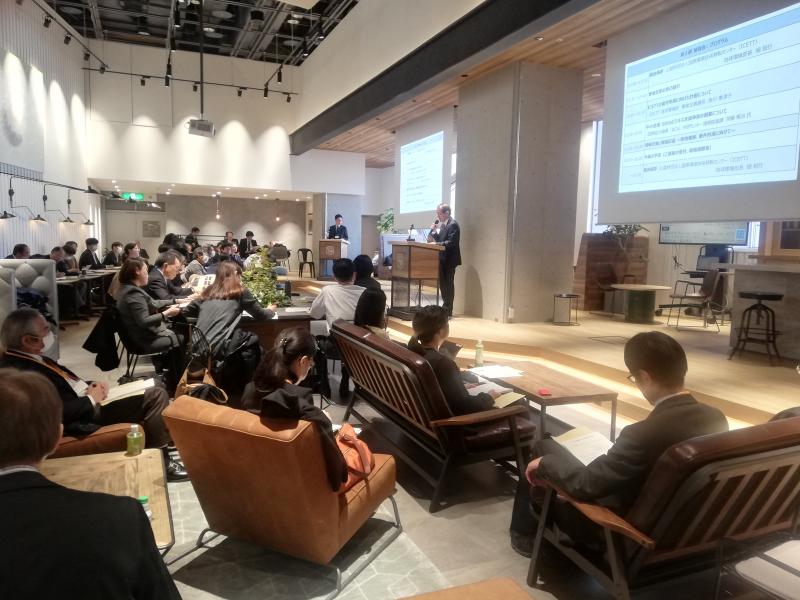
Opening remarks by ICETT Executive Director Hasegawa
[Part 1] Seminar:Development and Environment in Pacific Island Countries and Japanese Companies' Expansion Projects
In the first part of the seminar, three lecturers gave an overview of Pacific island countries from the perspectives of development, tourism, waste management, and investment.
1. "The State of Development in Pacific Island Countries."
Professor Tetsuo Umemura, Graduate School of International Development, Nagoya University
Contents: Characteristics and problems of Pacific island countries, history and exports of Fiji, Samoa and Vanuatu, examples of environment-related projects, etc.
2. "Current Status of Waste Management in Pacific Island Countries and JICA's Efforts".
Mr. Kenichiro Koiwa, Environmental Management Team 1, Environmental Management Group, Global Environment Department, Japan International Cooperation Agency (JICA)
Contents: Waste problems in Pacific island countries, JICA's efforts in waste issues, etc.
3. "Business Activities in Pacific Island Countries - Attractiveness and Points to Note, etc.
Mr. Ryuzo Saito, Director, Pacific Islands Center (PIC), International Organization
Contents: Key points of business in Pacific island countries (environmental business, social experiments, low-tech industry, key points of business investment), etc.
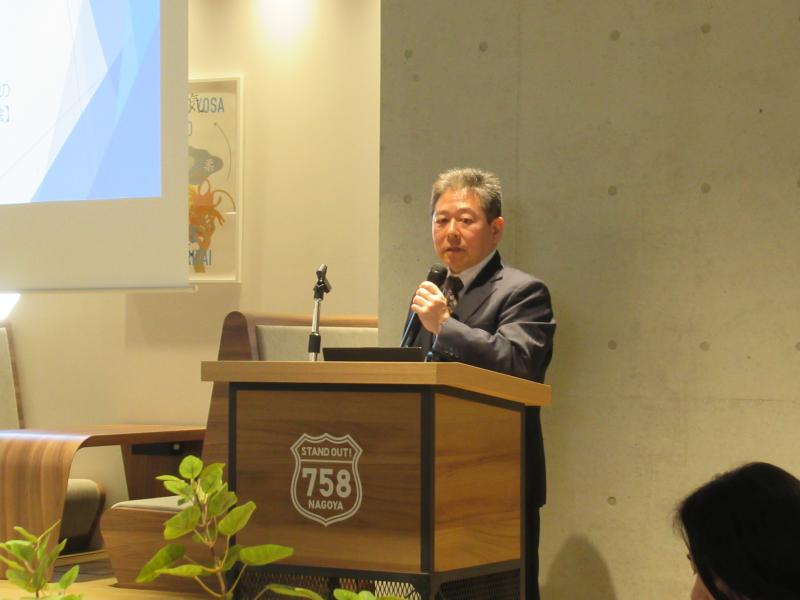 | 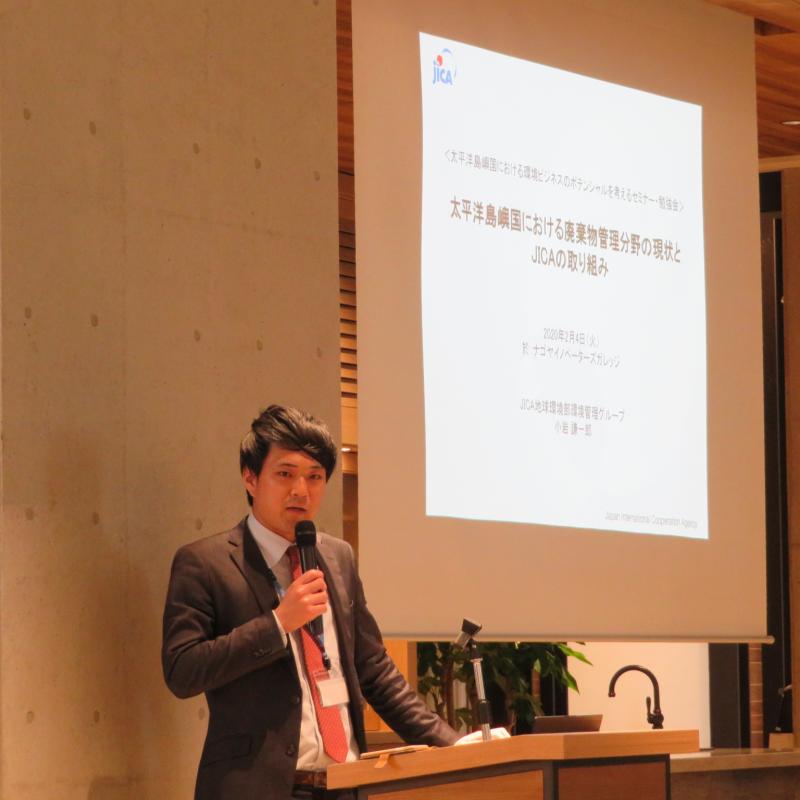 | 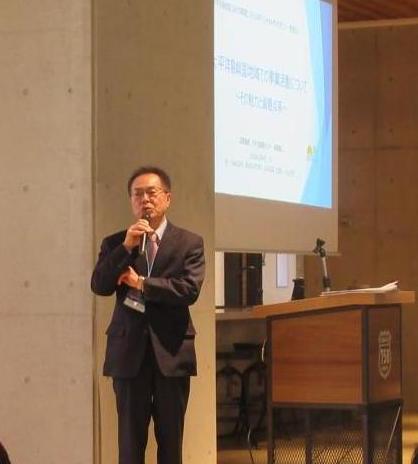 |
| Prof. Umemura, Nagoya University Graduate School | JICA Mr. Koiwa | PIC Director Mr. Saito |
[Part 2First Study Session: Toward the Formation of Environmental Business Deals in Pacific Island Countries
In the second part of the study session, in order to get a more concrete image of the business, each participant first introduced himself/herself, followed by an introduction of support programs and an exchange of information with the participants on how to make a business deal.
1. ICETT's Plan for Case Formation (Etsuko Minamikawa, Director, Business Planning Section, ICETT)
Contents: Basic indicators on waste in Pacific island countries, ICETT's efforts in Palau through JICA's "Grassroots Project".
Recruitment of companies involved in referrals and deal formation
2. Outline of the SME and SDGs Business Support Program
Mr. Masaharu Ito, Cooperation Promotion Division, Chubu Center, Japan International Cooperation Agency (JICA)
Contents:Introduction of support programs, examples of adoption in the environmental field, etc.
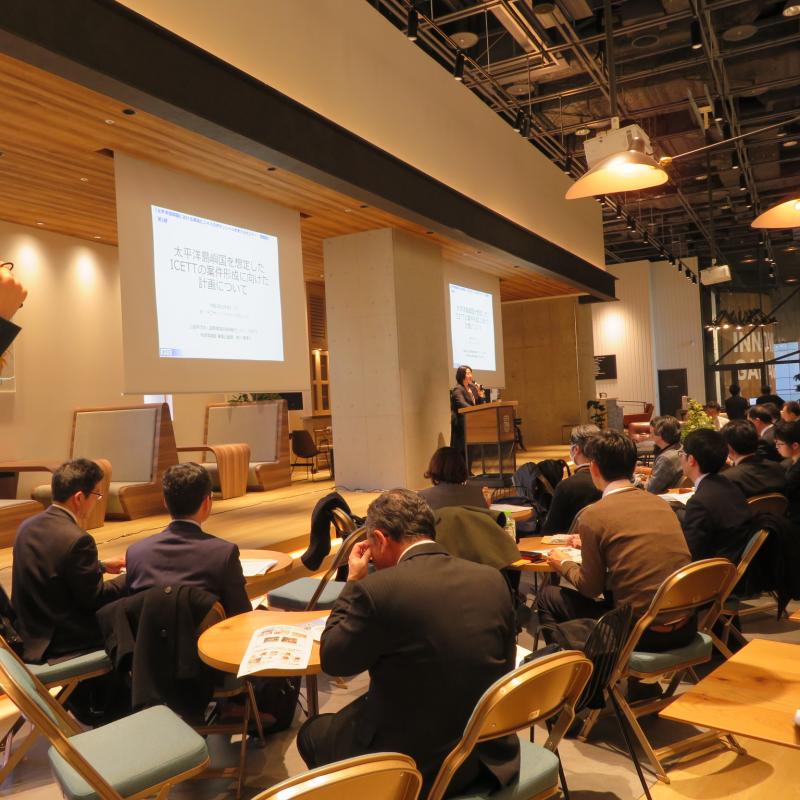 | 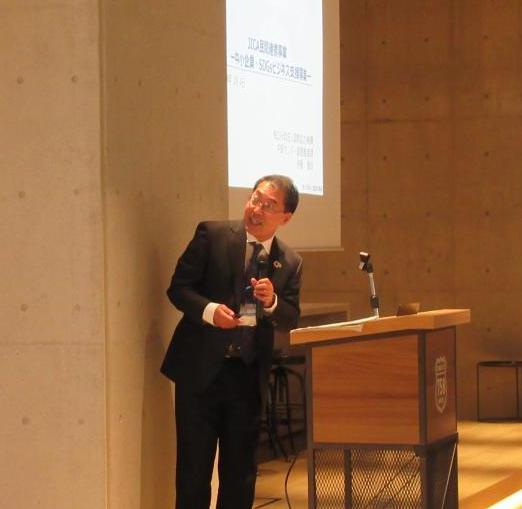 |
| ICETT Minamikawa | JICA Chubu Mr. Ito |
In the results of a questionnaire survey conducted beforehand, many participants commented that they were able to understand the current situation in island countries, and specifically, "Our products seem to be able to contribute to community-based waste management. We also received many comments such as, "I am not sure if there are economies of scale or if the payback will be commensurate with the investment.
We would like to take this opportunity to thank everyone who participated in the event, as well as all the organizations involved for their support and cooperation in publicizing the event.


